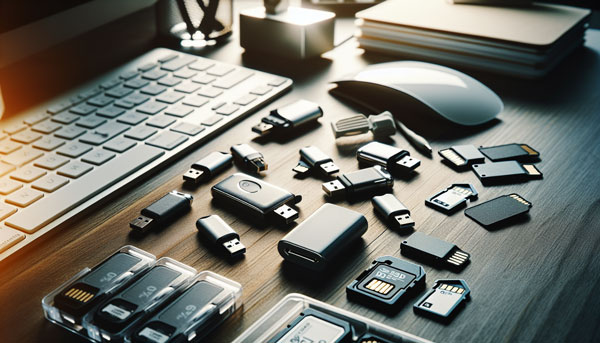Flash memory devices, including USB drives and memory cards, have become essential tools for digital data storage. Despite their popularity and utility, they also include some drawbacks.
Advantages
- Portability: Flash memory devices like USB drives and memory cards are impressively compact, making them highly portable. Whether transferring files or just storing important data for on-the-go access, these diminutive devices are incredibly convenient.
- Durability: Unlike traditional hard disk drives with moving parts prone to damage from shock or vibration, flash memory is far more resilient due to its lack of mechanical components.
- Compatibility: With universal serial bus technology being standard across virtually all computers and many other electronics, flash memory devices like USB drives are highly compatible.
- Speed: Compared to older storage methods such as CDs or DVDs, flash memory offers speedy reading/writing processes which greatly reduces wait times when accessing or storing data.
Limitations
- Limited Write Cycles: Similar to SSDs, flash memory has a finite number of write cycles per cell before failure ensues - although technological advancements have significantly mitigated this issue in recent years increasing the durability of such products.
- Data Corruption Risk: Events like impromptu ejection from a system without 'safe' ejection or exposure to strong magnetic fields can corrupt the stored data on a flash drive or card.
- Security Risks: Due to their small size and portability, these devices can be easily lost or stolen leading to unwanted access to your data unless properly encrypted.
- Size Limitations: While HDDs can still attain larger storage capacities at lower costs compared to equivalent-capacity flash-memory products which may not cover high-end storage requirements efficiently.
So, while there are notable downsides present in using such tech – as with any – flash storage remains an eminently viable method for most lower-capacity data storing needs.
